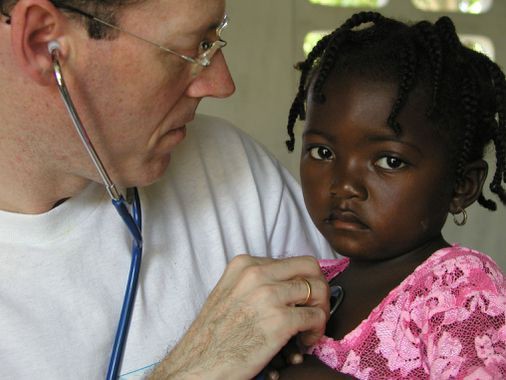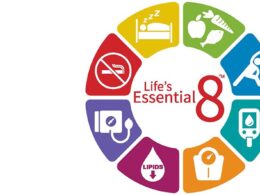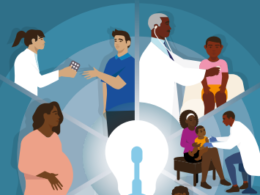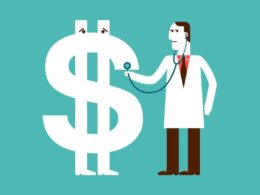Last year, Partners in Health provided 2.1 million women’s health checkups, organized another 2.1 million home visits by community health workers , and handled 2.8 million outpatient visits (in Low Income Countries)
That is how you change the status quo!
In his memory, let´s fight to change de status quo!
The Boston Globe
By Michelle A. Williams
Updated February 22, 2022
Michelle A. Williams is dean of the faculty at the Harvard T.H. Chan School of Public Health.
From his student days onward, he insisted that all people deserve the dignity of access to high-quality medical care.
Then he put his convictions into action.
When others claimed it would be impossible or impractical to deliver antiretroviral medicines to the poor in rural Haiti, Paul set out to prove them wrong.
He and his team at Partners in Health enlisted a network of local health care workers to deliver cutting-edge HIV treatments to the most remote and impoverished communities.
They saved countless lives.
And they established a model that they would replicate again and again, transforming health care in nations around the world.
From his student days onward, he insisted that all people deserve the dignity of access to high-quality medical care.
Then he put his convictions into action.
I looked up to Paul immensely.
He was a physician and a medical anthropologist by training, but to me he embodied the spirit of public health, the field to which I have devoted my career.
He was a physician and a medical anthropologist by training, but to me he embodied the spirit of public health, the field to which I have devoted my career.
Public health is about identifying the challenges that dampen humanity’s potential — and then finding ways to solve them.
Public health is about identifying the challenges that dampen humanity’s potential — and then finding ways to solve them.
This work can take many forms.
Leading frontiers of public health right now include improving nutrition, tackling climate change, controlling infectious diseases, curbing violence, and even reimagining aging to enable the elderly to live more independent and fulfilling lives.
At their heart, though, all these fields and many others are about refusing to accept the status quo.
It is the status quo that well over half a million people each year will die from malaria.
We could accept that as inevitable.
Or we could develop a vaccine, improve treatments, distribute mosquito netting, and create a free online course to teach tens of thousands of community leaders how to analyze real-world data and implement evidence-based eradication strategies.
It is the status quo that nearly 3 million people worldwide will die each year from diseases caused by excess weight.
We could accept that as inevitable.
Or we could systematically identify cost-effective, culturally sensitive, population-level strategies to improve nutrition, boost physical activity, and help people from all backgrounds maintain healthier weights.
It is the status quo that the poor do not receive equitable access to quality health care.
We could accept that as inevitable.
Or, as Paul Farmer did, we could fight each day to change the odds.
It is the status quo that the poor do not receive equitable access to quality health care.
We could accept that as inevitable.
Or, as Paul Farmer did, we could fight each day to change the odds.
Partners in Health, the nonprofit that Paul founded, now works in more than a dozen locations, from the Navajo Nation in the United States to Sierra Leone, Kazakhstan, Mexico, Malawi, and Rwanda, where Paul was stationed when he died.
Last year, Partners in Health provided 2.1 million women’s health checkups and organized another 2.1 million home visits by community health workers.
The organization’s global clinics handled 2.8 million outpatient visits.
That is how you change the status quo.
That is how you change the status quo.
I’m not talking just about the cumulative impact of all those millions of health care visits, though that no doubt saved many lives.
I’m talking about the importance of a model that takes as its starting point the assumption that every individual has dignity and worth, and that every individual deserves quality care.
Put up against the status quo, that is a radical notion.
Paul insisted it be the norm.
I’m talking about the importance of a model that takes as its starting point the assumption that every individual has dignity and worth, and that every individual deserves quality care.
Just as important, he taught others how to internalize this truth and then turn it into action.
He helped launch, and served as chancellor of, the University of Global Health Equity. Based in rural Rwanda, the university delivers on its singular mission of training global health leaders to identify and surmount the complex challenges of delivering quality care to the most underserved communities.
Other public health institutions, including my own, are also moving strongly in this direction, forging collaborations to build capacity and strengthen health care delivery across the Global South and empowering local leaders to lift up the health of their communities.
I love the quote Paul gave the Boston Globe a while back: “I go to bed worried about all the promises we’ve made. And I get up each morning thinking we haven’t made enough promises.”
I go to bed worried about all the promises we’ve made. And I get up each morning thinking we haven’t made enough promises.” (Paul Farmer)
He’s right. We haven’t made enough promises.
The status quo still condemns far too many to breathe polluted air, to drink contaminated water, to go without the medical care they need.
He’s right. We haven’t made enough promises.
The status quo still condemns far too many to breathe polluted air, to drink contaminated water, to go without the medical care they need.
In his memory, let’s fight to change that.
Michelle A. Williams is dean of the faculty at the Harvard T.H. Chan School of Public Health.
Originally published at https://www.bostonglobe.com on February 22, 2022.












